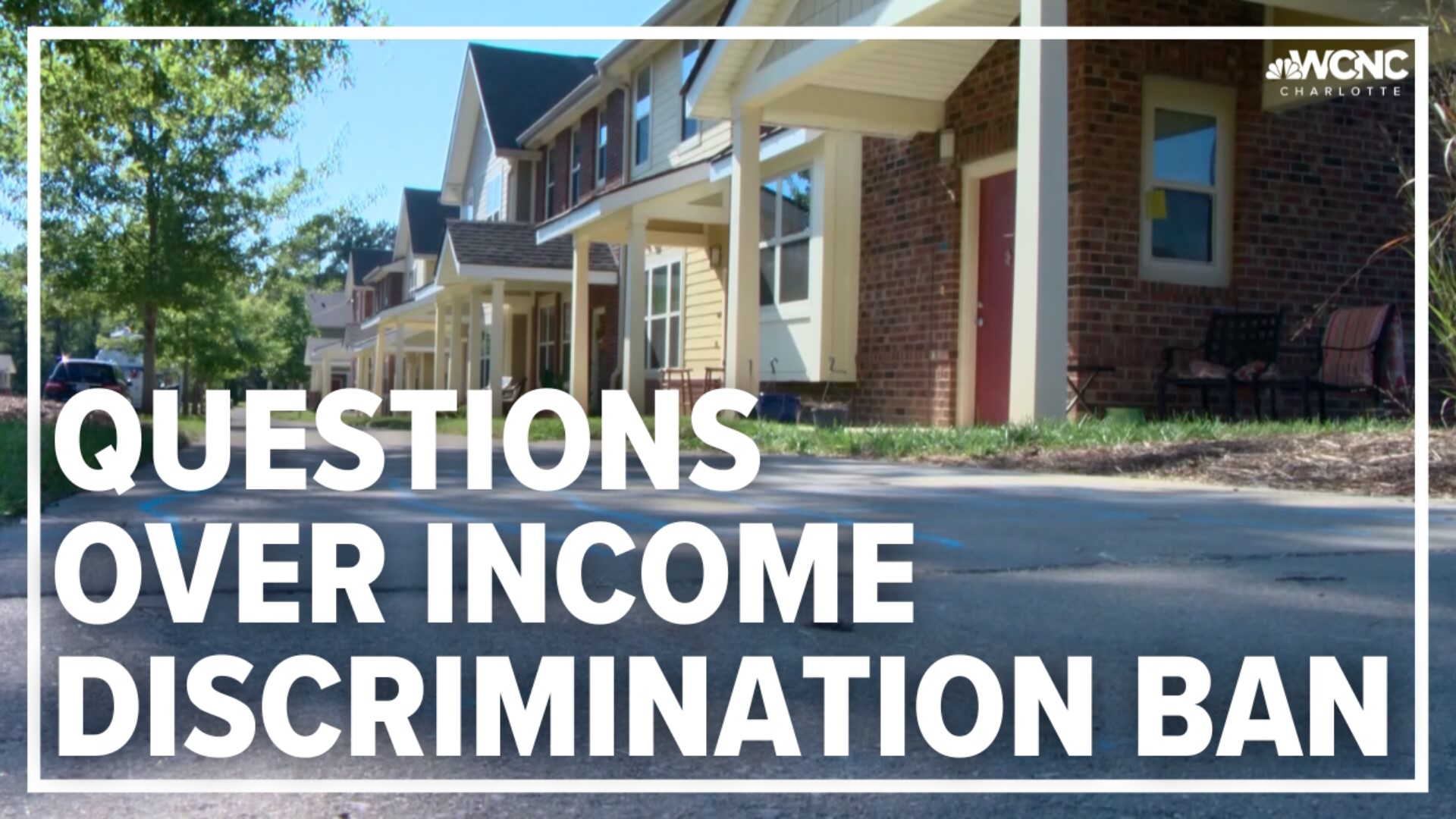CHARLOTTE, N.C. — Mecklenburg County is joining Charlotte in an effort to protect low-income residents. The Board of County Commissioners has passed a policy mirroring Charlotte’s ban on "source of income discrimination."
While the new policy aims to prevent discrimination against tenants that pay rent with vouchers or disability benefits, Action North Carolina worries the process to report issues won’t be effective.
"There's a lot to iron out still with this source of income discrimination,” Jessica Moreno with Action NC said.
Moreno is happy to see efforts to protect tenants but worries they may have a hard time proving discrimination. She also questioned how landlords will be held accountable when she says discrimination is so common.
"For folks on vouchers, or disability, or social security it's so much harder for them to secure housing,” Moreno added.
The policy bans rentals and apartment complexes that receive county funding from denying legal forms of payment like housing vouchers.
Deputy County Manager Derrick Ramos said the goal, "is to increase access to safe, quality affordable housing, opportunities for low-income households, and to increase upward mobility opportunities for Mecklenburg County residents.”
Tenants wanting to report income discrimination can call 311. Moreno claimed that tenants call Action NC often because they can't get through to 311 to report code violations. She worries the same will happen for discrimination reports.
The county community relations committee will investigate claims of income discrimination made to them or 311.
If a violation is found, the landlord could be forced to pay the affected tenant $100 a day until they fix the issue. If they don’t accept the form of payment offered by the tenant, the landlord could face a fine of up to $23,000.
Contact Julia Kauffman at jkauffman@wcnc.com and follow her on Facebook, Twitter and Instagram.

